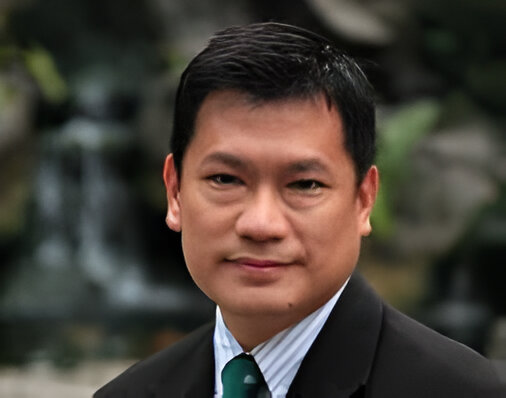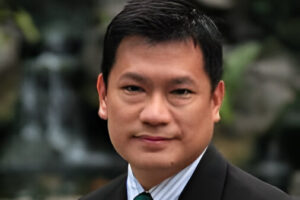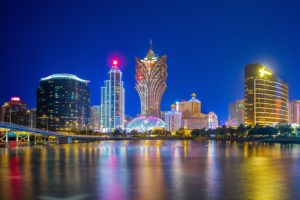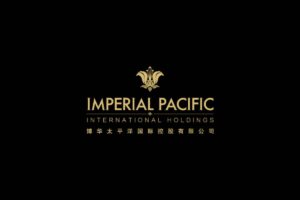Lau Kok Keng: “A major challenge for the arrival of casinos in Thailand lies in the regulatory framework”

The head of intellectual Property, Sports and Gaming at Rajah & Tann Singapore, spoke with Focus Gaming News about Thailand’s potential legalisation of gaming and its impact on the Asian market.
Exclusive interview.- The potential legalisation of casinos in Thailand could transform the Asian gaming landscape. To gain deeper insights, Focus Gaming News spoke to Lau Kok Keng, head of intellectual Property, Sports and Gaming at Rajah & Tann Singapore, who was part of a panel discussion titled “What’s Happening in Asia Pacific Part: Regulatory Updates and Understanding Growing Cross-Border Player Acquisition Risk” at the recent G2E Asia.
There has been much discussion about the possible legalisation of gaming in Thailand. How do you think this will change the dynamics of the gaming industry in the Asian market? What benefits and challenges will it bring?
Thailand has already long been a major draw for tourists, and the legalisation of casinos, integrated into entertainment complexes, could significantly transform the tourism landscape.
The development of integrated resorts in Thailand is expected to attract significant investments and facilitate the construction of major infrastructure projects, rejuvenating various areas across the country and creating thousands of additional job opportunities for its people.
With Thailand already boasting numerous tourist attractions that cater to different vacation lifestyles, the introduction of entertainment complexes featuring casinos could further enhance the country’s appeal as a premier tourist destination. This is likely to draw many tourists away from other Southeast Asian countries with casinos to Thailand.
A significant challenge lies in the regulatory framework, which is expected to be less than robust. This could deter the top international casinos from bidding for a casino licence and investing in building infrastructure in Thailand.
Without the top international casino operators being part of the casino landscape, Thailand’s foray into legalised casino gambling is likely to be less successful. The unstable political environment in Thailand is also another potential challenge, with the country experiencing 22 coups in 92 years or an average of 1 in 4 years. Any investor will certainly have to factor in the political risk in its decision to commit to a major investment in Thailand.
“The introduction of entertainment complexes featuring casinos could further enhance the country’s appeal as a premier tourist destination.”
Lau Kok Keng, head of intellectual Property, Sports and Gaming at Rajah & Tann Singapore.
At G2E Asia, you mentioned that it is likely Thailand will build its first integrated casino by 2029, ahead of the opening of Japan’s Osaka complex. What do you believe are the key factors for this to happen?
I said that the Thais are really keen and serious about wanting to beat Japan to the opening of the first integrated resort in each country. I believe that whether or not they can actually achieve this is down to political will. This will determine how expeditious the rollout of legislation, supporting regulations, and the implementation of the bidding process will be.
Although there have been positive movements in the right direction, significant work on the legal front is still needed, especially considering the state of the initial draft of the Entertainment Complex Bill. It is wholly inadequate, compared to the legislation that Singapore has. Then there is the construction work to deal with. Huge construction projects tend to encounter delays, so for Thailand to have its first casino ready by the end of 2029, everything must work out perfectly.
“Huge construction projects tend to encounter delays, so for Thailand to have its first casino ready by the end of 2029, everything must work out perfectly.”
Lau Kok Keng, head of intellectual Property, Sports and Gaming at Rajah & Tann Singapore.
In line with the previous question, do you think Japan is taking a “very conservative” approach and falling behind other countries in terms of gaming regulation?
Japan has been talking about legalising casinos for decades, and the slow walk it is taking to establishing integrated resorts is partly due to the complexity of its legal structure, with different agencies having ownership of different processes – the local government selecting operator candidates, the Tourism Ministry evaluating bids from interested operators, and the casino regulator determining who to award the casino licence to.
See also: Osaka IR project secures US$3.4bn loan
In contrast, Singapore has a unitary government which is heavily dominated by one political party. This results in the ability to make quick decisions, as well as to implement the decisions made expeditiously and efficiently, including passing laws to support the establishment of legalised casinos.
In light of the emergence of new gaming markets such as Thailand, how do you think this will affect already established markets like Macau and the Philippines?
Macau remains the premier gambling hub in the Asia-Pacific region, largely due to the history of casinos in the former Portuguese colony, the sheer number of casinos offering there, and the huge market that is Mainland China.
Although the Chinese government has been very vocal about its anti-gambling stance, openly discouraging its citizens from going overseas to gamble, Macau appears to be an exception, especially for the mass market gambling segment. As long as Mainland Chinese patronize Macau casinos, I don’t see how Thailand’s emergence as a casino destination will affect Macau in any significant way.
The impact will likely be more pronounced in neighbouring countries such as Cambodia, Laos, and Vietnam, where the casinos are mostly relatively smaller, and which currently attract a large number of Thai gamblers, especially those in border towns.
Once Thailand establishes its own casinos, Thai gamblers will most likely prefer to support local establishments, provided they meet the necessary entry requirements. This is expected to reduce the number of Thai gamblers visiting neighbouring countries.
As for the Philippines, I believe that they may possibly lose some of their market share to Thailand, especially if the entertainment complexes are of a high standard and offer top-class and good value entertainment in addition to the casinos there.
How do you view Singapore in terms of the gaming industry compared to other countries?
Singapore is a small country with a fairly small local population and a strong forward-thinking government. When the Singapore government decided to legalise casinos in 2005, it emphasized that Singapore casinos would set the standards for good casino governance and integrity which would seek to avoid the crime and vice that many casinos in other countries are associated with.
High on the priority list would be the development of a responsible gambling framework that would have adequate social safeguards to deal with problem gambling and protect minors, vulnerable persons and society at large from the harmful effects of gambling.
What has since emerged are two integrated resorts that are the envy of the gaming industry, and which have been seen as the gold standard of casino regulation and operation. So while Singapore may have only two casinos, both have punched above their weight and shown the way to how modern casinos ought to be operated and regulated.
As an expert in gaming law, I would like to ask about the controversy surrounding POGOs in the Philippines. If you are aware of the issue, you may have seen discussions about a possible ban in the country. Do you think this is the right path to take? How do you think the issue should be handled?
I am not able to comment on this as I am not an expert on POGOs in the Philippines. POGOs used to contribute 0.7 per cent of the country’s GDP at its peak in 2019, but that figure has since declined to 0.2 per cent in 2023.
POGOs are also said to be associated with human trafficking, kidnappings and scams, and have clearly hit the nerves of the Chinese government given that most POGOs target residents of Mainland China, where online gambling is illegal.
Ultimately, I think it is down to the assessment of whether the harmful effects of POGOs on Philippine society far outweigh the economic benefits they bring.









